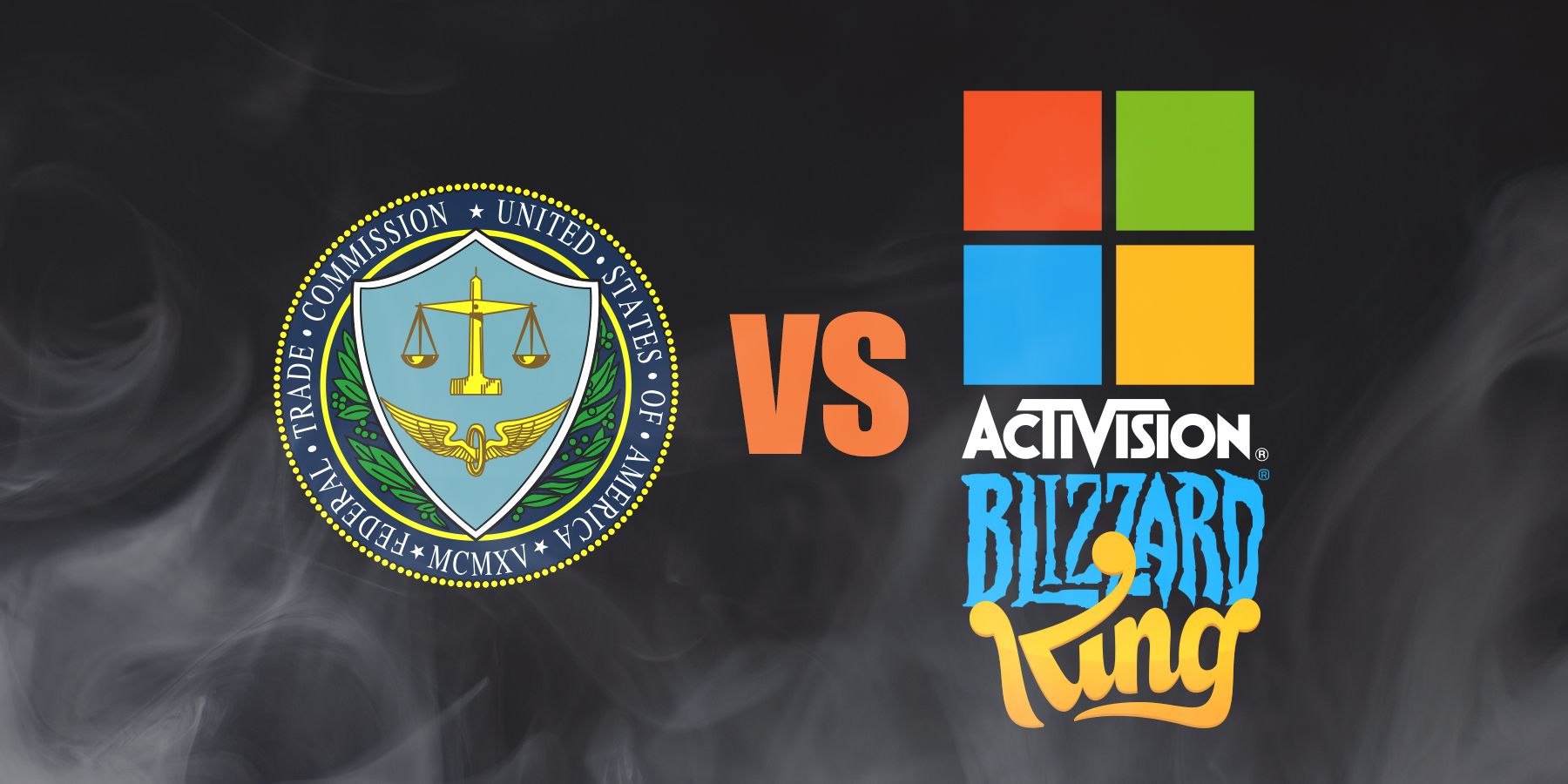Activision Blizzard Acquisition: FTC Challenges Court Ruling

Table of Contents
The FTC's Initial Concerns and Lawsuit
The FTC's primary concern centered around the potential anti-competitive effects of the Activision Blizzard acquisition on the gaming market. Their lawsuit argued that Microsoft's acquisition would grant them undue control, stifling competition and harming consumers. The crown jewel of Activision Blizzard's portfolio, Call of Duty, became a central focus of the FTC's argument.
-
Stifling Competition: The FTC argued that Microsoft acquiring Activision Blizzard would give them an unfair advantage, particularly in the console gaming market. They worried about Microsoft leveraging their newfound power to harm competitors.
-
Call of Duty Exclusivity: A significant point of contention was the potential for Microsoft to make Call of Duty an Xbox exclusive title. This would significantly disadvantage PlayStation players, potentially driving them towards Xbox or other gaming platforms. The FTC highlighted the immense popularity of Call of Duty and its importance to the overall gaming ecosystem.
-
Subscription Service Domination: The FTC also expressed concerns about the impact on the burgeoning subscription service market. Microsoft's Game Pass, already a strong contender, would gain access to Activision Blizzard's popular titles, potentially giving it an insurmountable advantage over competitors like PlayStation Plus and other subscription services.
The Court Ruling in Favor of Microsoft
Despite the FTC's strong arguments, a federal judge ruled in favor of Microsoft, allowing the Activision Blizzard acquisition to proceed. The court's decision rested on several key factors.
-
Insufficient Evidence: The judge found that the FTC had failed to provide sufficient evidence to demonstrate that the acquisition would substantially lessen competition in the gaming market. The court dismissed concerns about Call of Duty exclusivity, citing Microsoft's commitments to keep the franchise available on multiple platforms.
-
Witness Testimony and Market Analysis: The court's decision heavily relied on witness testimony from industry experts and detailed market analysis presented by Microsoft. This evidence seemingly contradicted the FTC's claims of anti-competitive behavior.
-
Legal Precedent: While not explicitly stated, the ruling established a significant legal precedent concerning the standard of evidence required to block large-scale mergers in the technology sector.
The FTC's Appeal and Arguments
Undeterred by the initial ruling, the FTC decided to appeal the decision. Their appeal reasserted their concerns about the acquisition's potential anti-competitive effects.
-
Renewed Antitrust Arguments: The FTC's appeal focused on strengthening their arguments regarding the potential harm to competition. They presented additional evidence and refined their analysis of the gaming market.
-
Strategic Approach: The FTC's appellate strategy likely involved focusing on specific aspects of the initial ruling that they believed were flawed or based on insufficient evidence. They aimed to highlight the long-term consequences of allowing the acquisition to proceed.
-
Broader Tech Industry Implications: The outcome of the appeal holds significant implications for future mergers and acquisitions not just in the gaming industry, but also across the broader technology sector. A successful appeal could set a new precedent for antitrust enforcement in the digital age.
Potential Outcomes of the Appeal
Several scenarios could emerge from the FTC's appeal:
-
Acquisition Upheld: The appeals court could uphold the lower court's decision, solidifying Microsoft's position as a major player in the gaming industry and potentially setting a precedent for future acquisitions.
-
Acquisition Overturned: The appeals court could overturn the lower court's decision, forcing Microsoft to divest Activision Blizzard. This outcome would have significant ramifications for both companies and the gaming landscape.
-
Negotiated Settlement: A negotiated settlement between the FTC and Microsoft could be reached, potentially involving Microsoft making concessions, such as extending commitments regarding Call of Duty availability.
Conclusion
The FTC's challenge to the Activision Blizzard acquisition underscores the complexities of regulating mergers in the dynamic gaming industry. The outcome of the appeal will significantly impact Microsoft, Activision Blizzard, and the future of gaming. The core arguments, revolving around fair competition and the long-term accessibility of Call of Duty, are critical for understanding the evolving regulatory landscape. The Activision Blizzard acquisition remains a landmark case that will shape future antitrust enforcement in the tech industry.
Call to Action: Stay informed about developments in the Activision Blizzard acquisition case and its impact on the future of the gaming industry. Follow our updates to stay abreast of the latest on this landmark Activision Blizzard acquisition and its implications for the future of gaming.

Featured Posts
-
 Las Vegas Police Launch Urgent Search For Missing British Paralympian
Apr 29, 2025
Las Vegas Police Launch Urgent Search For Missing British Paralympian
Apr 29, 2025 -
 8 Mart Onkokhirurg I Fitnes Trenor Obedinyavat Sili Za Borba S Raka Na Grdata
Apr 29, 2025
8 Mart Onkokhirurg I Fitnes Trenor Obedinyavat Sili Za Borba S Raka Na Grdata
Apr 29, 2025 -
 Chat Gpt Creator Open Ai Under Federal Trade Commission Investigation
Apr 29, 2025
Chat Gpt Creator Open Ai Under Federal Trade Commission Investigation
Apr 29, 2025 -
 Downtown Louisville Gas Leak Update On Evacuations And Investigation
Apr 29, 2025
Downtown Louisville Gas Leak Update On Evacuations And Investigation
Apr 29, 2025 -
 Russias Military Strategy And The Growing Tensions In Europe
Apr 29, 2025
Russias Military Strategy And The Growing Tensions In Europe
Apr 29, 2025
